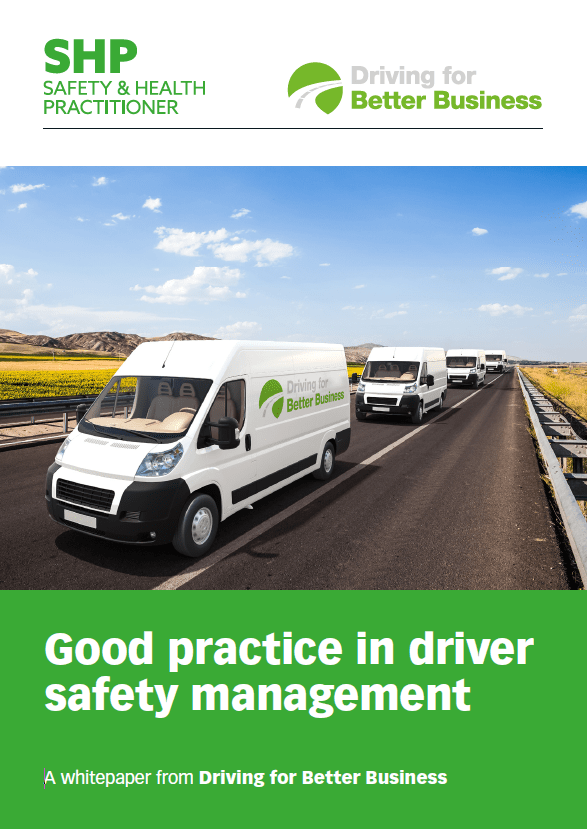In his third regular monthly column for SHP, Simon Turner at Driving for Better Business looks at driver fatigue and how employers can look to educate and ultimately prevent it in their fleet.

CREDIT: Fresh Start Images/ Alamy Stock Photo
Driver ‘fatigue’ is thought to contribute to 20% of collisions and up to 25% of all fatal and serious collisions.
There are two distinct forms and causes of driver tiredness.
- Sleepiness comes from a lack of necessary sleep and can cause the driver to fall asleep at the wheel. 57% of junior doctors when surveyed said they had crashed or had a near miss when driving home from a night shift, due to a lack of sleep.
- Fatigue results from the repetition of specific activities without break. The long-distance driver may have had sufficient sleep before their shift but still become fatigued due to the monotony of their journey and stop responding appropriately to events on the road.
Both conditions slow our mental processing and reaction times, and make decision-making more emotional than rational.
All organisations should address the risk of drivers lacking alertness when driving for work, and also when commuting home after long or night shifts.
What are the causes?
The need for sleep is the body’s response to being awake for an extended period.
However, other factors can also cause drowsiness, including:
- Carbs-based meals
- Circadian rhythm fluctuations most commonly between 2am and 6am and 2pm and 4pm
- Insufficient sleep or poor-quality sleep
- Sleep disorders
- Drugs, medicines or alcohol
After 16 hours’ wakefulness, or 12 hours’ work, the risk of accidents of any kind is considerably increased.
Research suggests that shifts performed after midnight and in the early morning both disrupt the sleep-wake cycle and it is difficult for workers to achieve sufficient restorative sleep during daytime hours.
Fatigue is caused by the monotony of repetitive tasks over an extended period of time. This means drivers will need to have regular breaks in which they exercise or engage in other mental or social tasks.
Sleep disorders
One third of the UK adult population will suffer insomnia at some point in their lives.
26% of the UK adult population is obese and a further 38% overweight. Obesity in particular increases the risk of sleep disorders, such as obstructive sleep apnoea.
Furthermore the Royal Society for Public Health says that 40% of adults are permanently sleep-deprived.
Stanley Coren’s famous study demonstrated that losing even one hour of sleep per night lead to drops in IQ; and also that driving one hour past a normal bedtime impaired reaction times by as much as twice the legal alcohol limit.
An employer’s duty
Health and safety (H&S) legislation imposes a duty of care on every employer to ensure the safety of employees and the public, which includes ensuring that a driver is fit to drive.
Professor John Groeger, researcher in driving safety and sleep at Nottingham Trent University and director of Sleep Wellbeing Science says: “Practically, employers must ask themselves two questions:
(a) does the shift schedule the driver follows allow them to have adequate sleep between drives, and
(b) does the driving required provide ample opportunity for intermittent breaks?”
Other best practice measures include ensuring that:
- Shift patterns and length mitigate fatigue as much as possible
- Staff are provided alternative ways of commuting if fatigue is likely at the end of a shift
- Drivers understand the need for 7-9 hours of quality sleep
- That staff who are too tired to drive must be allowed to refuse without penalty
- That business mileage is minimised, with remote meetings, clustered visits and overnight accommodation.
- That drivers understand the restorative effect of breaks and caffeine – but also that these are not substitutes for sufficient quality sleep
- That they pull over in safety, if necessary, rather than drive when sleepy.
This eBook will guide you through some of the key understandings you need to be able to manage driver safety effectively and, at the end, provide a series of free resources you can access to help you ensure your own driver safety management system is robust, legally compliant and in line with industry-accepted good practice.
Download this eBook from Driving for Better Business and SHP to cover:
- Why do we need to manage driver safety?
- Duty of care – a shared responsibility;
- Setting the rules with a driving for work policy;
- Managing driver safety;
- Ensuring safe vehicles;
- Safe journeys and fitness to drive;
- Record keeping;
- Reporting;
- The business benefits of good practice;
- Additional resources


